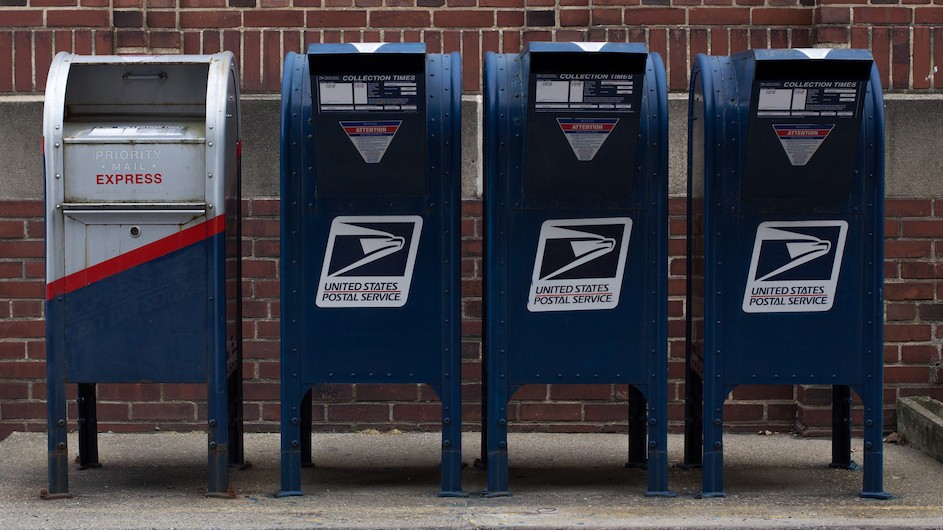The Postal Service, Presidents and Democracy
Donald Trump’s attacks on the United States postal service are not only unusual, they appear to be undemocratic.

Presidents rarely denigrate the post office. The current incumbent of the White House is an exception. Not only has President Trump called the post office a “joke”—an insult to every postal employee, as well as to the millions of Americans that rely on the organization every day—but he has also publicly warned that, should mail-in voting be encouraged, it might cost him his re-election.
This is all quite strange. When earlier presidents made pronouncements about the post office, they customarily reached for superlatives. The time would come, exulted John Quincy Adams in 1827, when the “facilities of intercourse” might soon be “carried to the door of every villager in the Union.” The post office, opined Richard Nixon in 1970, in the midst of the largest wildcat postal strike in American history, was a “vital element” in the nation’s “communications system.”
The only president who can be said to have anticipated Trump’s war on the post office was his kindred spirit, Andrew Jackson.
The post office had become dangerously corrupt, Jackson privately fumed to his friends in the months leading up to his victory in the election of 1828. Jackson’s surrogates in the press broadcast Jackson’s concerns. Should Jackson win, he vowed that his administration would clean out the “Augean stables” and fill the post office with pro-Jackson postmasters. Jackson did win and would-be postmasters flocked to the White House to claim their reward. To make good on his campaign promise, the notorious spoils system was born. In the months to come, the incoming administration summarily dismissed hundreds of meritorious postmasters for reasons that had nothing to do with their performance in office.
Textbook accounts sympathetic to Jackson routinely hail his inauguration as a festival of democracy starring awe-struck backwoods yeomen whose muddy boots and clumsy manners turned a genteel reception into a raucous free-for-all. For the first time in American history, a president had invited the “common man” to mingle with the high-and-mighty. Jackson’s critics knew better. Travel was expensive and the yeomanry stayed home. Not the people, but the patronage-hungry filled the White House, and they quite literally held the new administration hostage until they obtained a solemn guarantee that campaign workers would receive lucrative contracts and jobs, the vast majority of which were in the post office.
Jackson’s scorn for the post office persisted even after he had purged its ranks of detractors. Outraged by the commandeering of the post office in 1835 by antislavery activists intent on flooding the slaveholding states with abolitionist pamphlets, Jackson issued a public statement urging Congress to declare illegal the circulation in the mail of “incendiary” tracts. Never before had a president so brazenly challenged the presumption that the First Amendment’s guarantee of a free press extended to information sent through the mail.
Calmer heads prevailed and Jackson’s proposal was shelved. Had it become law, warned South Carolina Senator John C. Calhoun, unapologetically proslavery lawmakers—whose ranks included, in addition to Calhoun, Jackson himself—might come to regret it. If one Congress had the power to ban a literary genre, might not another, on the same logic, require its circulation?
Jackson’s contempt for civil servants and free speech—like Trump’s hostility toward the post office and mail-in balloting—violated time-honored norms. Breaks in continuity can be revealing. Jacksonian Democracy furthered a reactionary anti-Black and anti-Native American white supremacist agenda, while Trump’s promise to “Make America Great Again” has betrayed some of the very ideals that have long made the United States a beacon of hope.
Historians are poor prophets. We don’t do the future. Even so, one can wonder if historians looking back on the Trump presidency from the vantage point of the mid-21st century might point to Trump’s attack on the post office as a revealing inflection point in the course of the republic. Self-government does not just happen; it has to be nurtured and sustained. For over two centuries, the post office has been a wellspring of democracy. For Trump, as for Jackson, the post office challenged his grasp on power. Might this help explain why, at this moment in American history, such a seemingly innocuous institution is once again in the news. Knowledge is power, and the casting of ballots, like the circulation of information, has been, and can be, an epoch-making agent of change.

Richard R. John is a professor of history and communications at the Columbia Journalism School. His publications include Spreading the News: The American Postal System from Franklin to Morse and Network Nation: Inventing American Telecommunications. This column is editorially independent of Columbia News.